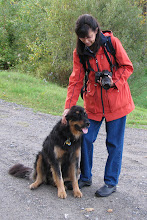I have lived
for most of my life with a condition that I had no idea existed or had a name
until ten years ago. That name is misophonia.
The word literally means “hatred of sound” and it is now becoming a subject
of scientific research, https://www.nature.com/articles/s41598-019-44084-8.
It may sound
bizarre to those without the condition but perhaps this example can illustrate
it: imagine being locked in a room where
someone continually scrapes their fingernails down a blackboard.
My
misophonia is a major influence on where I live, where I go, and who I can be
around.
In the
workplace (I am now retired) I was subjected to “sound triggers” like gum
chewing, sniffing, humming, and whistling.
With misophonia there are also visual triggers. Just the sight of a person’s jaw moving, or their
foot rotating or twiddling of thumbs evokes feelings of rage and anxiety that make
me want to bolt from the room.
Office
layouts would change over time as dictated by the latest trends. Separate offices were the norm until the open
concept was adopted, then later on, cubicles became the “in” thing. The open concept was always the worst for me
as I could hear and see people all around me.
Each layout or personnel change brought with it the fear of new
triggering situations.
Then there
are the social get-togethers. Consider
that you are at a family event when suddenly you become aware of a close family
member (whom you love) rotating their foot as they sit on the couch. You are in such discomfort that you look for
any way to escape or avoid the sight.
You try to find a way to block it from your view (I have awkwardly
propped cushions on my lap to do that) or you go and sit at a far table instead
of the couch but the hostess calls you back and kindly says “sit here, be
comfortable”. But you can not be
comfortable. You are writhing inside.
I have,
after considerable anguish, decided to tell people what is bothering me and
often they have been considerate and kind.
One friend told me “Tell me whatever bothers you and I won’t do it”
which was wonderful, and a family member said “Just signal to me when I am
doing it” but these things are done unconsciously and it is very hard to keep
interrupting someone’s conversation to ask them to stop rotating their foot, or
sniffing, etcetera.
When discussing
with one friend about her gum chewing, she told me that she needed to do it for
her dry mouth, and then when she did stop, she would tell me how much she
missed it. On two later occasions, she
chewed gum while one other person was present, thinking, I guess, that I would
be inhibited from mentioning it in front of them. These passive-aggressive actions seriously
damaged our friendship.
I am now 71,
and like many aging people, I live with the knowledge that at some point I can
lose my autonomy and be forced to live in a setting that is not of my
choosing. A person with misophonia faces
even greater anxiety on this score. Will
I be able to have noise-cancelling headphones and white noise machines at all
times? Will I be able to avoid the
triggering sounds and visual cues that put me into a state of torment and
anxiety?
I hope that
with greater awareness, people will come to understand the serious nature of
this condition and how some thoughtful accommodations can help to ease the
misery of it.




